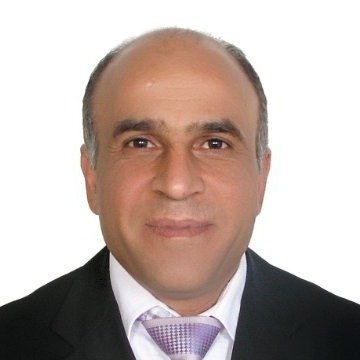Best Child Visitation Lawyers in Damascus
Share your needs with us, get contacted by law firms.
Free. Takes 2 min.
Free Guide to Hiring a Family Lawyer
List of the best lawyers in Damascus, Syria
About Child Visitation Law in Damascus, Syria:
In Damascus, Syria, child visitation laws are established to ensure the child can maintain a relationship with both parents post-divorce, provided the relationship is in the child's best interest. The non-custodial parent is usually awarded visitation rights, but the exact schedule and nature of visits can vary depending on several factors including the child's well-being, the parents' relationship, and the distance between their homes. Courts also consider special situations such as cases of domestic violence or substance abuse when awarding visitation rights.
Why You May Need a Lawyer:
Seeking legal advice is an important step in a visitation dispute as this issue can be very complex. A lawyer can help when there are disagreements between parents over the visitation schedule, allegations of unfit parenting, or difficulty in enforcing the agreed-upon visitation rights. Furthermore, a lawyer can provide essential guidance if one parent wishes to modify the existing visitation order or if one parent is relocating and this move impacts child visitation.
Local Laws Overview:
In Damascus, the personal status law governs matters related to family, including child custody and visitation. Typically, maternal custody is favored until a certain age, beyond which custody may transfer to the father. Visitation rights are awarded based on the child's best interest. It's important to note that if a custodial parent prevents the non-custodial parent from visiting without a justified reason, this could serve as grounds for changing the custody arrangement.
Frequently Asked Questions:
1. At what age does the child get to choose where they live?
The court takes into account the wishes of a child who is mature enough to express an informed opinion, but there is no fixed age for this under Syrian law. It is typically assessed on a case-by-case basis.
2. Can visitation rights be denied?
Visitation rights can only be denied by the court if there's a substantiated claim that contact with the non-custodial parent will harm the child's mental, physical, or emotional health.
3. Can visitation rights be modified?
Yes, visitation rights can be modified if there is a significant change in circumstances that necessitates the change, and the modification is in the best interest of the child.
4. What if the custodial parent is not abiding by the visitation schedule?
If the custodial parent consistently violates the visitation schedule, the non-custodial parent can file a complaint in court. Serious or consistent violation may lead to a change in custody.
5. Can grandparents get visitation rights?
Under Syrian Law, grandparents can apply for visitation rights to their grandchildren, especially in instances where the parent(s) are denying contact. However, ultimately, it's up to the court to decide based on the best interest of the child.
Additional Resources:
You can seek help from the 'Ministry of Social Affairs and Labor', the 'Syrian Lawyers Syndicate' or consult reputable online legal platforms. It's also advisable to connect with local NGOs working on child and family welfare for further assistance.
Next Steps:
If you need legal assistance related to child visitation, it is recommended to consult with a local attorney specializing in family law. They can understand your situation, provide expert advice and help you navigate the legal process. Remember, the child's welfare should always be the utmost priority in any legal matters related to child visitation.
Lawzana helps you find the best lawyers and law firms in Damascus through a curated and pre-screened list of qualified legal professionals. Our platform offers rankings and detailed profiles of attorneys and law firms, allowing you to compare based on practice areas, including Child Visitation, experience, and client feedback.
Each profile includes a description of the firm's areas of practice, client reviews, team members and partners, year of establishment, spoken languages, office locations, contact information, social media presence, and any published articles or resources. Most firms on our platform speak English and are experienced in both local and international legal matters.
Get a quote from top-rated law firms in Damascus, Syria — quickly, securely, and without unnecessary hassle.
Disclaimer:
The information provided on this page is for general informational purposes only and does not constitute legal advice. While we strive to ensure the accuracy and relevance of the content, legal information may change over time, and interpretations of the law can vary. You should always consult with a qualified legal professional for advice specific to your situation.
We disclaim all liability for actions taken or not taken based on the content of this page. If you believe any information is incorrect or outdated, please contact us, and we will review and update it where appropriate.








